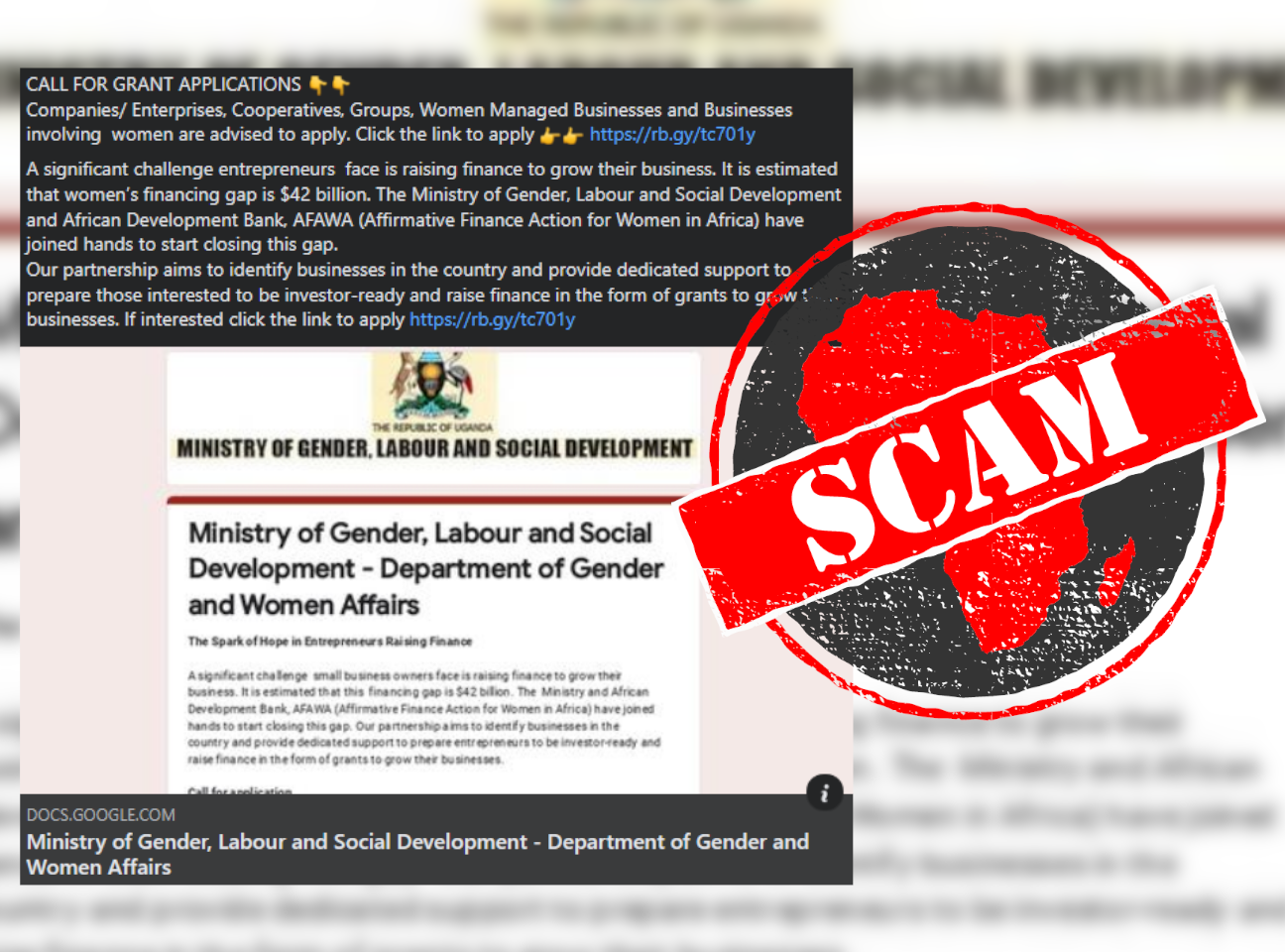IN SHORT: Scammers posing as the Ugandan Ministry of Gender, Labour and Social Development on Facebook are offering grants to women entrepreneurs. Avoid their entreaties, the government says.
Ugandan entrepreneurs, especially women, who need funding to grow their businesses can now apply for a grant, according to a February 2024 post on Facebook.
The post reads, in part: “CALL FOR GRANT APPLICATIONS Companies/ Enterprises, Cooperatives, Groups, Women Managed Businesses and Businesses involving women are advised to apply.”
The call for applications is reportedly being issued by the Ugandan Ministry of Gender, Labour and Social Development and the African Development Bank, among others.
The post includes a link where applicants can supposedly apply for the grant via a Google form.
Clicking on the link brings up text explaining that the grant aims to close a US$42 billion funding gap.
Applicants are asked to provide personal information, including WhatsApp numbers, the location of the business and how much capital has been invested so far. According to the form, between $20,000 and $1 million in funding is available.
So, is the grant legitimate? We checked.

Ignore fake grant
A search of the ministry's website and social media handles found nothing related to the grant.
The Ministry of Gender, Labour and Social Development has flagged the grant as “FAKE” on its official X (formerly Twitter) account.
“PUBLIC NOTICE We have a noted various communications circulating on various online media purportedly from @Mglsd_UG & @AfDB_Group requesting for members of the public to register for a programme called "The Spark of Hope Entrepreneur Raising Finance" @UgandaMediaCent @GCICUganda,” the ministry wrote.
“Members of the public are duly informed and warned that the posts are fake and not from @Mglsd_UG and therefore should be disregarded as such. Authentic information on our Programmes can be found on our Official Website and Social Media handles.”
For more information on how to avoid such links, particularly on Facebook, read our guide here.
Republish our content for free
For publishers: what to do if your post is rated false
A fact-checker has rated your Facebook or Instagram post as “false”, “altered”, “partly false” or “missing context”. This could have serious consequences. What do you do?
Click on our guide for the steps you should follow.
Publishers guideAfrica Check teams up with Facebook
Africa Check is a partner in Meta's third-party fact-checking programme to help stop the spread of false information on social media.
The content we rate as “false” will be downgraded on Facebook and Instagram. This means fewer people will see it.
You can also help identify false information on Facebook. This guide explains how.




Add new comment